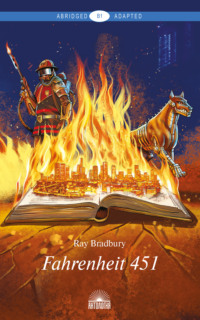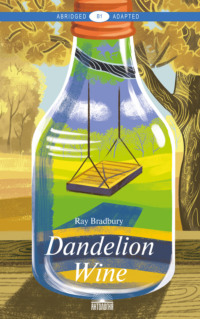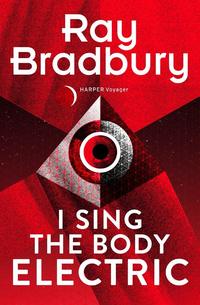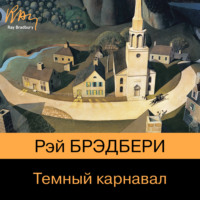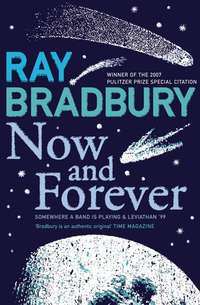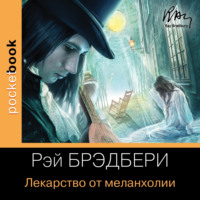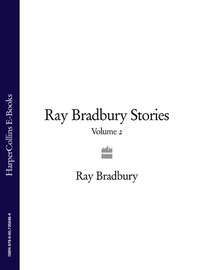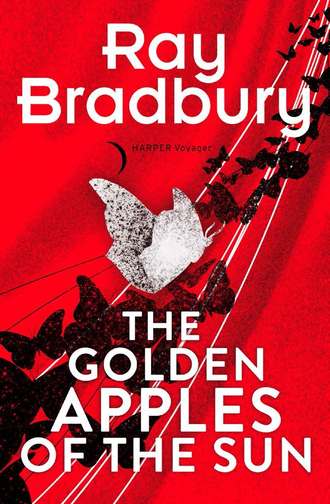
Полная версия
Golden Apples of the Sun
I’ll like it here, thought Cecy.
“What?” asked the girl, as if she’d heard a voice.
“What’s your name?” asked Cecy carefully.
“Ann Leary.” The girl twitched. “Now why should I say that out loud?”
“Ann, Ann,” whispered Cecy. “Ann, you’re going to be in love.”
As if to answer this, a great roar sprang from the road, a clatter and a ring of wheels on gravel. A tall man drove up in a rig, holding the reins high with his monstrous arms, his smile glowing across the yard.
“Ann!”
“Is that you, Tom?”
“Who else?” Leaping from the rig, he tied the reins to the fence.
“I’m not speaking to you!” Ann whirled, the bucket in her hands slopping.
“No!” cried Cecy.
Ann froze. She looked at the hills and the first spring stars. She stared at the man named Tom. Cecy made her drop the bucket.
“Look what you’ve done!”
Tom ran up.
“Look what you made me do!”
He wiped her shoes with a kerchief, laughing.
“Get away!” She kicked at his hands, but he laughed again, and gazing down on him from miles away, Cecy saw the turn of his head, the size of his skull, the flare of his nose, the shine of his eye, the girth of his shoulder, and the hard strength of his hands doing this delicate thing with the handkerchief. Peering down from the secret attic of this lovely head, Cecy yanked a hidden copper ventriloquist’s wire and the pretty mouth popped wide: “Thank you!”
“Oh, so you have manners?” The smell of leather on his hands, the smell of the horse rose from his clothes into the tender nostrils, and Cecy, far, far away over night meadows and flowered fields, stirred as with some dream in her bed.
“Not for you, no!” said Ann.
“Hush, speak gently,” said Cecy. She moved Ann’s fingers out toward Tom’s head. Ann snatched them back.
“I’ve gone mad!”
“You have.” He nodded, smiling but bewildered. “Were you going to touch me then?”
“I don’t know. Oh, go away!” Her cheeks glowed with pink charcoals.
“Why don’t you run? I’m not stopping you.” Tom got up. “Have you changed your mind? Will you go to the dance with me tonight? It’s special. Tell you why later.”
“No,” said Ann.
“Yes!” cried Cecy. “I’ve never danced. I want to dance. I’ve never worn a long gown, all rustly. I want that. I want to dance all night. I’ve never known what it’s like to be in a woman, dancing; Father and Mother would never permit it. Dogs, cats, locusts, leaves, everything else in the world at one time or another I’ve known, but never a woman in the spring, never on a night like this. Oh, please—we must go to that dance!”
She spread her thought like the fingers of a hand within a new glove.
“Yes,” said Ann Leary, “I’ll go. I don’t know why, but I’ll go to the dance with you tonight, Tom.”
“Now inside, quick!” cried Cecy. “You must wash, tell your folks, get your gown ready, out with the iron, into your room!”
“Mother,” said Ann, “I’ve changed my mind!”
The rig was galloping off down the pike, the rooms of the farmhouse jumped to life, water was boiling for a bath, the coal stove was heating an iron to press the gown, the mother was rushing about with a fringe of hairpins in her mouth. “What’s come over you, Ann? You don’t like Tom!”
“That’s true,” Ann stopped amidst the great fever.
But it’s spring! thought Cecy.
“It’s spring,” said Ann.
And it’s a fine night for dancing, thought Cecy.
“… for dancing,” murmured Ann Leary.
Then she was in the tub and the soap creaming on her white seal shoulders, small nests of soap beneath her arms, and the flesh of her warm breasts moving in her hands and Cecy moving the mouth, making the smile, keeping the actions going. There must be no pause, no hesitation, or the entire pantomime might fall in ruins! Ann Leary must be kept moving, doing, acting, wash here, soap there, now out! Rub with a towel! Now perfume and powder!
“You!” Ann caught herself in the mirror, all whiteness and pinkness like lilies and carnations. “Who are you tonight?”
“I’m a girl seventeen.” Cecy gazed from her violet eyes. “You can’t see me. Do you know I’m here?”
Ann Leary shook her head. “I’ve rented my body to an April witch, for sure.”
“Close, very close!” laughed Cecy. “Now, on with your dressing.”
The luxury of feeling good clothes move over an ample body! And then the halloo outside.
“Ann, Tom’s back!”
“Tell him to wait.” Ann sat down suddenly. “Tell him I’m not going to that dance.”
“What?” said her mother, in the door.
Cecy snapped back into attention. It had been a fatal relaxing, a fatal moment of leaving Ann’s body for only an instant. She had heard the distant sound of horses’ hoofs and the rig rambling through moonlit spring country. For a second she thought, I’ll go find Tom and sit in his head and see what it’s like to be in a man of twenty-two on a night like this. And so she had started quickly across a heather field, but now, like a bird to a cage, flew back and rustled and beat about in Ann Leary’s head.
“Ann!”
“Tell him to go away!”
“Ann!” Cecy settled down and spread her thoughts.
But Ann had the bit in her mouth now. “No, no, I hate him!”
I shouldn’t have left—even for a moment. Cecy poured her mind into the hands of the young girl, into the heart, into the head, softly, softly. Stand up, she thought.
Ann stood.
Put on your coat!
Ann put on her coat.
Now, march!
No! thought Ann Leary.
March!
“Ann,” said her mother, “don’t keep Tom waiting another minute. You get on out there now and no nonsense. What’s come over you?”
“Nothing, Mother. Good night. We’ll be home late.”
Ann and Cecy ran together into the spring evening.
A room full of softly dancing pigeons ruffling their quiet, trailing feathers, a room full of peacocks, a room full of rainbow eyes and lights. And in the center of it, around, around, around, danced Ann Leary.
“Oh, it is a fine evening,” said Cecy.
“Oh, it’s a fine evening,” said Ann.
“You’re odd,” said Tom.
The music whirled them in dimness, in rivers of song; they floated, they bobbed, they sank down, they arose for air, they gasped, they clutched each other like drowning people and whirled on again, in fan motions, in whispers and sighs, to “Beautiful Ohio.”
Cecy hummed. Ann’s lips parted and the music came out.
“Yes, I’m odd,” said Cecy.
“You’re not the same,” said Tom.
“No, not tonight.”
“You’re not the Ann Leary I knew.”
“No, not at all, at all,” whispered Cecy, miles and miles away. “No, not at all,” said the moved lips.
“I’ve the funniest feeling,” said Tom.
“About what?”
“About you.” He held her back and danced her and looked into her glowing face, watching for something. “Your eyes,” he said, “I can’t figure it.”
“Do you see me?” asked Cecy.
“Part of you’s here, Ann, and part of you’s not.” Tom turned her carefully, his face uneasy.
“Yes.”
“Why did you come with me?”
“I didn’t want to come,” said Ann.
“Why, then?”
“Something made me.”
“What?”
“I don’t know.” Ann’s voice was faintly hysterical.
“Now, now, hush, hush,” whispered Cecy. “Hush, that’s it. Around, around.”
They whispered and rustled and rose and fell away in the dark room, with the music moving and turning them.
“But you did come to the dance,” said Tom.
“I did,” said Cecy.
“Here.” And he danced her lightly out an open door and walked her quietly away from the hall and the music and the people.
They climbed up and sat together in the rig.
“Ann,” he said, taking her hands, trembling. “Ann.” But the way he said the name it was as if it wasn’t her name. He kept glancing into her pale face, and now her eyes were open again. “I used to love you, you know that,” he said.
“I know.”
“But you’ve always been fickle and I didn’t want to be hurt.”
“It’s just as well, we’re very young,” said Ann.
“No, I mean to say, I’m sorry,” said Cecy.
“What do you mean?” Tom dropped her hands and stiffened.
The night was warm and the smell of the earth shimmered up all about them where they sat, and the fresh trees breathed one leaf against another in a shaking and rustling.
“I don’t know,” said Ann.
“Oh, but I know,” said Cecy. “You’re tall and you’re the finest-looking man in all the world. This is a good evening; this is an evening I’ll always remember, being with you.” She put out the alien cold hand to find his reluctant hand again and bring it back, and warm it and hold it very tight.
“But,” said Tom, blinking, “tonight you’re here, you’re there. One minute one way, the next minute another. I wanted to take you to the dance tonight for old times’ sake. I meant nothing by it when I first asked you. And then, when we were standing at the well, I knew something had changed, really changed, about you. You were different. There was something new and soft, something …” He groped for a word. “I don’t know, I can’t say. The way you looked. Something about your voice. And I know I’m in love with you again.”
“No,” said Cecy. “With me, with me.”
“And I’m afraid of being in love with you,” he said. “You’ll hurt me again.”
“I might,” said Ann.
No, no, I’d love you with all my heart! thought Cecy. Ann, say it to him, say it for me. Say you’d love him with all your heart.
Ann said nothing.
Tom moved quietly closer and put his hand up to hold her chin. “I’m going away. I’ve got a job a hundred miles from here. Will you miss me?”
“Yes,” said Ann and Cecy.
“May I kiss you good-by, then?”
“Yes,” said Cecy before anyone else could speak.
He placed his lips to the strange mouth. He kissed the strange mouth and he was trembling.
Ann sat like a white statue.
“Ann!” said Cecy. “Move your arms, hold him!”
She sat like a carved wooden doll in the moonlight.
Again he kissed her lips.
“I do love you,” whispered Cecy. “I’m here, it’s me you saw in her eyes, it’s me, and I love you if she never will.”
He moved away and seemed like a man who had run a long distance. He sat beside her. “I don’t know what’s happening. For a moment there … ”
“Yes?” asked Cecy.
“For a moment I thought—” He put his hands to his eyes. “Never mind. Shall I take you home now?”
“Please,” said Ann Leary.
He clucked to the horse, snapped the reins tiredly, and drove the rig away. They rode in the rustle and slap and motion of the moonlit rig in the still early, only eleven o’clock spring night, with the shining meadows and sweet fields of clover gliding by.
And Cecy, looking at the fields and meadows, thought, It would be worth it, it would be worth everything to be with him from this night on. And she heard her parents’ voices again, faintly, “Be careful. You wouldn’t want to lose your magical powers, would you—married to a mere mortal? Be careful. You wouldn’t want that.”
Yes, yes, thought Cecy, even that I’d give up, here and now, if he would have me. I wouldn’t need to roam the spring nights then, I wouldn’t need to live in birds and dogs and cats and foxes, I’d need only to be with him. Only him. Only him.
The road passed under, whispering.
“Tom,” said Ann at last.
“What?” He stared coldly at the road, the horse, the trees, the sky, the stars.
“If you’re ever, in years to come, at any time, in Green Town, Illinois, a few miles from here, will you do me a favor?”
“Perhaps.”
“Will you do me the favor of stopping and seeing a friend of mine?” Ann Leary said this haltingly, awkwardly.
“Why?”
“She’s a good friend. I’ve told her of you. I’ll give you her address. Just a moment.” When the rig stopped at her farm she drew forth a pencil and paper from her small purse and wrote in the moonlight, pressing the paper to her knee. “There it is. Can you read it?”
He glanced at the paper and nodded bewilderedly.
“Cecy Elliott, 12 Willow Street, Green Town, Illinois,” he said.
“Will you vist her someday?” asked Ann.
“Someday,” he said.
“Promise?”
“What has this to do with us?” he cried savagely. “What do I want with names and papers?” He crumpled the paper into a tight ball and shoved it in his coat.
“Oh, please promise!” begged Cecy.
“… promise … ” said Ann.
“All right, all right, now let me be!” he shouted.
I’m tired, thought Cecy. I can’t stay. I have to go home. I’m weakening. I’ve only the power to stay a few hours out like this in the night, traveling, traveling. But before I go …
“… before I go,” said Ann.
She kissed Tom on the lips.
“This is me kissing you,” said Cecy.
Tom held her off and looked at Ann Leary and looked deep, deep inside. He said nothing, but his face began to relax slowly, very slowly, and the lines vanished away, and his mouth softened from its hardness, and he looked deep again into the moonlit face held here before him.
Then he put her off the rig and without so much as a good night was driving swiftly down the road.
Cecy let go.
Ann Leary, crying out, released from prison, it seemed, raced up the moonlit path to her house and slammed the door.
Cecy lingered for only a little while. In the eyes of a cricket she saw the spring night world. In the eyes of a frog she sat for a lonely moment by a pool. In the eyes of a night bird she looked down from a tall, moon-haunted elm and saw the light go out in two farmhouses, one here, one a mile away. She thought of herself and her family, and her strange power, and the fact that no one in the family could ever marry any one of the people in this vast world out here beyond the hills.
“Tom?” Her weakening mind flew in a night bird under the trees and over deep fields of wild mustard. “Have you still got the paper, Tom? Will you come by someday, some year, sometime, to see me? Will you know me then? Will you look in my face and remember then where it was you saw me last and know that you love me as I love you, with all my heart for all time?”
She paused in the cool night air, a million miles from towns and people, above farms and continents and rivers and hills. “Tom?” Softly.
Tom was asleep. It was deep night; his clothes were hung on chairs or folded neatly over the end of the bed. And in one silent, carefully upflung hand upon the white pillow, by his head, was a small piece of paper with writing on it. Slowly, slowly, a fraction of an inch at a time, his fingers closed down upon and held it tightly. And he did not even stir or notice when a blackbird, faintly, wondrously, beat softly for a moment against the clear moon crystals of the windowpane, then, fluttering quietly, stopped and flew away toward the east, over the sleeping earth.
The Wilderness
“Oh, the Good Time has come at last”
It was twilight, and Janice and Leonora packed steadily in their summer house, singing songs, eating little, and holding to each other when necessary. But they never glanced at the window where the night gathered deep and the stars came out bright and cold.
“Listen!” said Janice.
A sound like a steamboat down the river, but it was a rocket in the sky. And beyond that—banjos playing? No, only the summer-night crickets in this year 2003. Ten thousand sounds breathed through the town and the weather. Janice, head bent, listened. Long, long ago, 1849, this very street had breathed the voices of ventriloquists, preachers, fortunetellers, fools, scholars, gamblers, gathered at this selfsame Independence, Missouri. Waiting for the moist earth to bake and the great tidal grasses to come up heavy enough to hold the weight of their carts, their wagons, their indiscriminate destinies, and their dreams.
“Oh, the Good Time has come at last,
To Mars we are a-going, sir,
Five Thousand Women in the sky,
That’s quite a springtime sowing, sir!”
“That’s an old Wyoming song,” said Leonora. “Change the words and it’s fine for 2003.”
Janice lifted a matchbox of food pills, calculating the totals of things carried in those high-axled, tall-bedded wagons. For each man, each woman, incredible tonnages! Hams, bacon slabs, sugar, salt, flour, dried fruits, “pilot” bread, citric acid, water, ginger, pepper—a list as big as the land! Yet here, today, pills that fit a wristwatch fed you not from Fort Laramie to Hangtown, but all across a wilderness of stars.
Janice threw wide the closet door and almost screamed. Darkness and night and all the spaces between the stars looked out at her.
Long years ago two things had happened. Her sister had locked her, shrieking, in a closet. And, at a party, playing hide-and-seek, she had run through the kitchen and into a long dark hall. But it wasn’t a hall. It was an unlit stairwell, a swallowing blackness. She had run out upon empty air. She had pedaled her feet, screamed, and fallen! Fallen in midnight blackness. Into the cellar. It took a long while, a heartbeat, to fall. And she had smothered in that closet a long, long time without daylight, without friends, no one to hear her screamings. Away from everything, locked in darkness. Falling in darkness. Shrieking!
The two memories.
Now, with the closet door wide, with darkness like a velvet shroud hung before her to be stroked by a trembling hand, with the darkness like a black panther breathing there, looking at her with unlit eyes, the two memories rushed out. Space and a falling. Space and being locked away, screaming. She and Leonora working steadily, packing, being careful not to glance out the window at the frightening Milky Way and the vast emptiness. Only to have the long-familiar closet, with its private night, remind them at last of their destiny.
This was how it would be, out there, sliding toward the stars, in the night, in the great hideous black closet, screaming, but no one to hear. Falling forever among meteor clouds and godless comets. Down the elevator shaft. Down the nightmare coal chute into nothingness.
She screamed. None of it came out of her mouth. It collided upon itself in her chest and head. She screamed. She slammed the closet door! She lay against it! She felt the darkness breathe and yammer at the door and she held it tight, eyes watering. She stood there a long time, until the trembling vanished, watching Leonora work. And the hysteria, thus ignored, drained away and away, and at last was gone. A wristwatch ticked, with a clean sound of normality, in the room.
“Sixty million miles.” She moved at last to the window as if it were a deep well. “I can’t believe that men on Mars, tonight, are building towns, waiting for us.”
“The only thing to believe is catching our Rocket tomorrow.”
Janice raised a white gown like a ghost in the room.
“Strange, strange. To marry—on another world.”
“Let’s get to bed.”
“No! The call comes at midnight. I couldn’t sleep, thinking how to tell Will I’ve decided to take the Mars Rocket. Oh, Leonora, think of it, my voice traveling sixty million miles on the lightphone to him. I changed my mind so quick—I’m scared!”
“Our last night on Earth.”
Now they really knew and accepted it; now the knowledge had found them out. They were going away, and they might never come back. They were leaving the town of Independence in the state of Missouri on the continent of North America, surrounded by one ocean which was the Atlantic and another the Pacific, none of which could be put in their traveling cases. They had shrunk from this final knowledge. Now it was facing them. And they were struck numb.
“Our children, they won’t be Americans, or Earth people at all. We’ll all be Martians, the rest of our lives.”
“I don’t want to go!” cried Janice suddenly.
The panic froze her.
“I’m afraid! The space, the darkness, the Rocket, the meteors! Everything gone! Why should I go out there?”
Leonora took hold of her shoulders and held her close, rocking her. “It’s a new world. It’s like the old days. The men first and the women after.”
“Why, why should I go, tell me!”
“Because,” said Leonora at last, quietly, seating her on the bed, “Will is up there.”
His name was good to hear. Janice quieted.
“These men make it so hard,” said Leonora. “Used to be if a woman ran two hundred miles for a man it was something. Then they made it a thousand miles. And now they put a whole universe between us. But that can’t stop us, can it?”
“I’m afraid I’ll be a fool on the Rocket.”
“I’ll be a fool with you.” Leonora got up. “Now, let’s walk around town, let’s see everything one last time.”
Janice stared out at the town. “Tomorrow night this’ll all be here, but we won’t. People’ll wake up, eat, work, sleep, wake again, but we won’t know it, and they’ll never miss us.”
Leonora and Janice moved around each other as if they couldn’t find the door.
“Come on.”
They opened the door, switched off the lights, stepped out, and shut the door behind them.
In the sky there was a great coming-in and coming-in. Vast flowering motions, huge whistlings and whirlings, snowstorms falling. Helicopters, white flakes, dropping quietly. From west and east and north and south the women were arriving, arriving. Through all the night sky you saw helicopters blizzard down. The hotels were full, private homes were making accommodations, tent cities rose in meadows and pastures like strange, ugly flowers, and the town and the country were warm with more than summer tonight. Warm with women’s pink faces and the sunburnt faces of new men watching the sky. Beyond the hills rockets tried their fire, and a sound like a giant organ, all its keys pressed upon at once, shuddered every crystal window and every hidden bone. You felt it in your jaw, your toes, your fingers, a shivering.
Leonora and Janice sat in the drugstore among unfamiliar women.
“You ladies look very pretty, but you sure look sad,” said the soda-fountain man.
“Two chocolate malteds.” Leonora smiled for both of them, as if Janice were mute.
They gazed at the chocolate drink as if it were a rare museum painting. Malts would be scarce for many years on Mars.
Janice fussed in her purse and took out an envelope reluctantly and laid it on the marble counter.
“This is from Will to me. It came in the Rocket mail two days ago. It was this that made up my mind for me, made me decide to go. I didn’t tell you. I want you to see it now. Go ahead, read the note.”
Leonora shook the note out of the envelope and read it aloud:
“Dear Janice: This is our house if you decide to come to Mars. Will.”
Leonora tapped the envelope again, and a color photograph dropped out, glistening, on the counter. It was a picture of a house, a dark, mossy, ancient, caramel-brown, comfortable house with red flowers and green cool ferns bordering it, and a disreputably hair ivy on the porch.
“But, Janice!”
“What?”
“This is a picture of your house, here on Earth, here on Elm Street!”
“No. Look close.”
And they looked again, together, and on both sides of the comfortable dark house and behind it was scenery that was not Earth scenery. The soil was a strange color of violet, and the grass was the faintest bit red, and the sky glowed like a gray diamond, and a strange crooked tree grew to one side, looking like an old woman with crystals in her white hair.
“That’s the house Will’s built for me,” said Janice, “on Mars. It helps to look at it. All yesterday, when I had the chance, alone, and was most afraid and panicky, I took out this picture and looked at it.”
They both gazed at the dark comfortable house sixty million miles away, familiar but unfamiliar, old but new, a yellow light shining in the right front parlor window.



